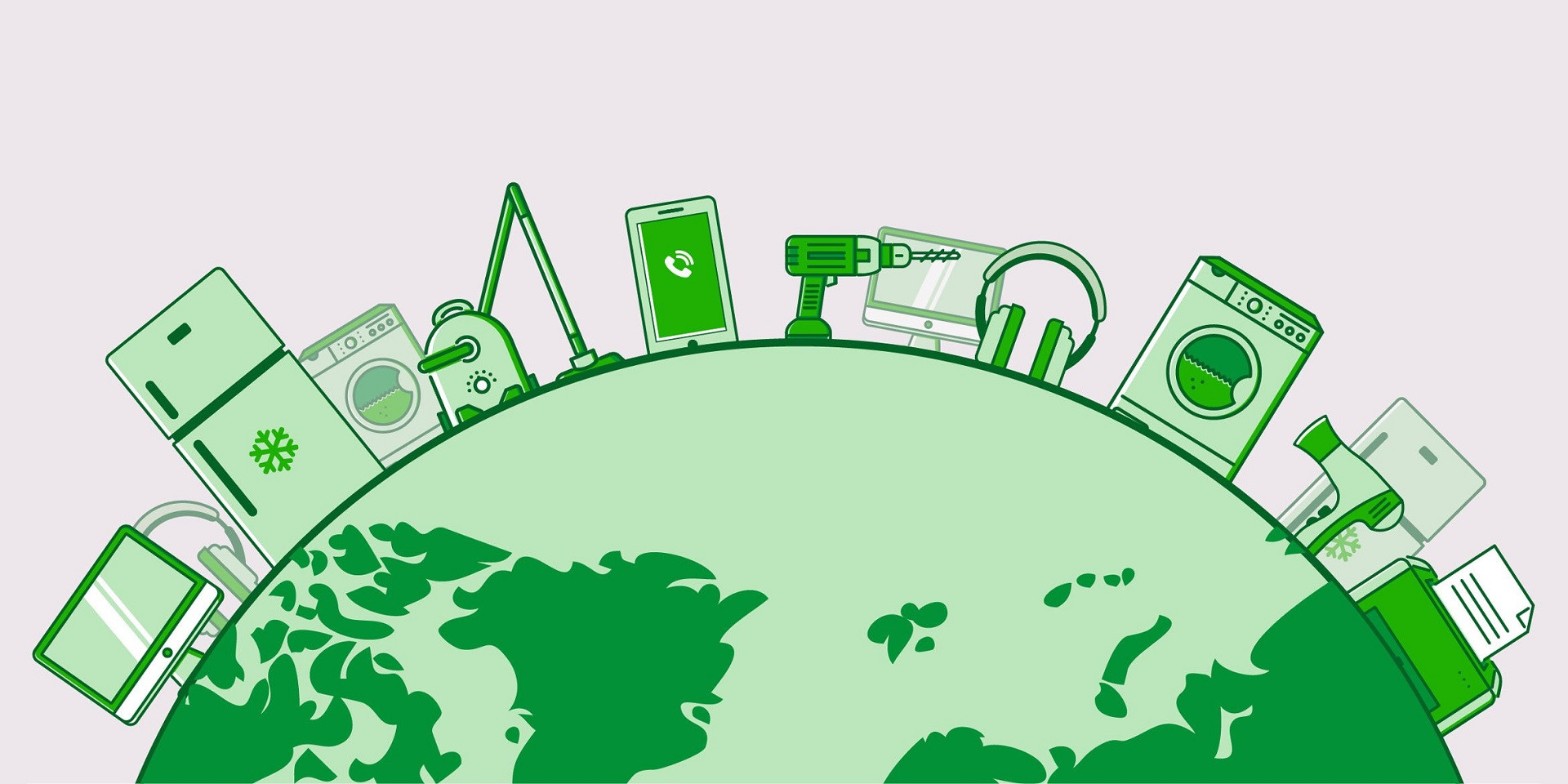E-Waste Electronic Recycling: A Complete Guide to Sustainable Management
With over 50 million tonnes produced yearly, electronic garbage, or “e-waste,” has emerged as a critical global challenge in this era. Unusually, just 17.4% gets recycled, and 2.7% is recovered. According to UN estimates, if current trends continue, we may have an astounding 120 million tons of electronic trash by 2050.
Cadmium, lead, antimony, nickel, mercury, and other dangerous elements are included in e-waste and are a serious threat to the environment. Ecosystems are disrupted by these hazardous components’ production of damaging gasses and contamination of water bodies. Moving toward a sustainable production and consumption model that reduces technological waste requires immediate effort.
In the face of unsuccessful recycling systems, responsible consumption—which emphasizes the reuse of technical devices—emerges as a critical answer. This blog will examine the importance of e-waste electronic recycling and examine how companies such as GreenTek Reman are the one-stop solution for e-waste collection Center in Delhi responsibly.
What is E- e-waste electronic Recycling?
The methodical process of gathering, classifying, breaking down, and either reusing or discarding electronic equipment at the end of their useful lives is known as “e-waste electronic recycling.” Electronic trash comprises a wide variety of electronic devices that are no longer in use or functional. E-waste recycling is essential to environmental sustainability because it keeps dangerous materials out of the environment and helps recover valuable materials.
40% of users switch phones every two years, and 37.8% do so when the phone reaches the end of its usable life. Any electrically powered item that has reached the end of its useful life is considered electronic trash, according to the Organisation for Economic Co-operation and Development (OECD). So, we’re not limited to discussing smartphones. By an EU directive, let’s examine some of the many kinds of WEEE (Waste Electrical and Electronic Equipment) that are in use:
- Freezers, refrigerators, and other refrigeration devices.
- Devices for telephony, Laptops, and computers
- Solar panels and consumer electronics
- Screens, TVs, and monitors
- LED light bulbs
- Vending machines
- Any Other Electronic Devices
Read More : Innovative Ways for E-Waste Recycling Management
Why the Upsurge in E-Waste?
Every part of our lives is incorporating technology more and more. Products that didn’t previously have semiconductors or sensors are getting them, resulting in wearable monitoring, smart houses, TVs that can stream content from the internet, and many other things.
In the meantime, gadgets are becoming less and less durable; many will be discarded after their batteries run out in favour of new ones. By upgrading the design or software and removing support for earlier models, companies purposefully cause their products to become obsolete. This makes it typically less expensive and simpler to purchase a new product than to fix an old one. In the meantime, the businesses continue to make money from consistent sales.
Additionally, as the increasing middle-class transitions to digital, demand for electronic gadgets is growing globally due to falling prices. 7.7 billion people worldwide own a cell phone, and half of all households have access to the internet.
How Can We Manage Our Technological Garbage?
According to Peter Bakker, president of the World Business Council for Sustainable Development (WBCSD), “global e-waste is the fastest growing waste stream.” In light of this, he is demanding immediate action. Let’s examine a few of them:
- Reduce
We are using an increasing number of devices and changing them more frequently. The consumer, who ought to be less receptive to marketing tactics that promote consumption, and manufacturers, who are progressively implementing eco-design policies, are both responsible for breaking this habit.
- Reuse
Electronic recycling specialists advise friends and relatives to either offer or inherit working equipment, or to put them up for sale on the secondary market. Donating them to specialized charities is an additional option.
- Recycle
Recycling should be the first choice when an item is beyond repair and unlikely to be used by someone nearby. Customers can choose to give their old device back to the store where they bought the new one or to an organization that specializes in electronic refurbishing.
“Ensure sustainable consumption and production patterns” is one of the Sustainable Development Goals (SDG) stated by the UN. In terms of discarded electronics, this entails managing them in an environmentally sound manner at every stage of their life cycle and minimizing the release of toxins into the air, water, and soil to lessen the harm they do to human health and the environment.
GreenTek Reman- The Best Reliable Source for Your e-waste Collection Centers in Delhi
GreenTek Reman, a reputable name in e-waste recycling, runs state-of-the-art collecting centers in Delhi with an emphasis on resource recovery and appropriate disposal. With cutting-edge recycling facilities and advanced gear, they can effectively disassemble different types of electronic garbage while adhering to India’s recycling e-waste recycling management norms and strict environmental regulations.
For the convenience and organization of e-waste disposal, collection sites with strategic locations are available to both people and businesses in Delhi. Beyond just protecting the environment, GreenTek Reman’s dedication helps with socioeconomic growth by creating jobs in the recycling e-waste management industry.
Selecting GreenTek Reman guarantees dependable and sustainable e-waste solutions, supporting a cleaner, greener future as the demand for electronic devices increases. In conclusion, GreenTek Reman shines as a sustainable role model, providing the best e-waste collection centers in Delhi, even while India struggles with e-waste issues.
It is our joint duty to embrace ethical recycling to create a healthy planet. With the “R2v3 certificate,” GreenTek Reman is one of the top 10 e-waste management firms in India that has been approved by government bodies.
Read More : What happens when we don’t recycle e-waste properly?


